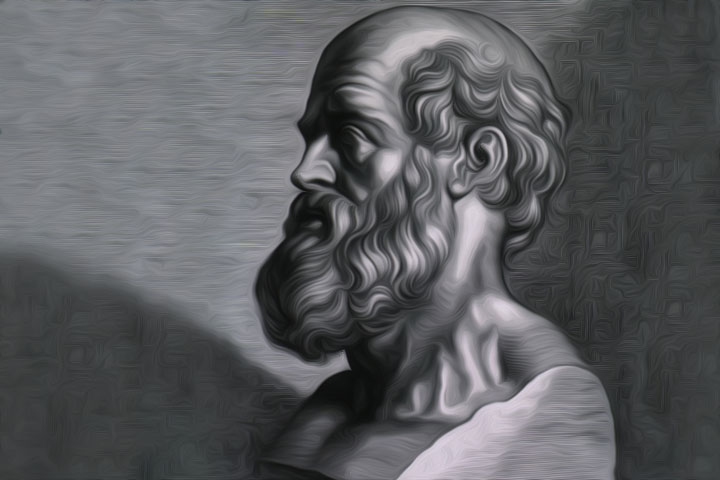Introduction
“Just as those who drink, after they have quenched their thirst, begin then to observe the ornamentation of the drinking-cups and to turn them about, so the young man, when he is satisfied,” said Hippias of Elis. Considered as an early Sophist, he was a contemporary of the great Athenian thinker Socrates and believed that virtue is universal and hence, nationality and citizenship are frivolous since the entire mankind is a global village where people think on similar lines, regardless of their ethnicity.
He despised adroitness and was reputed as a non-conformist or iconoclast of sorts who propounded that every good value in this world is universal- a psychological branch of study called racial psychology. Although Hippias is not known to have written any treatises, the renowned thinker Plato has authored two dialogues ‘Hippias Major’ and ‘Hippias Minor’ which attempt to embody this pioneer’s personality and thoughts, while describing him as narcissistic.

Hippias was born around 460BC in the town of Elis on the Peloponnesian peninsula and is believed to have studied under a thinker called Hegesidamus, whose antecedents are obscure. Hippias arrived in Athens around the same time as Socrates was gaining popularity in the Grecian capital as an eccentric yet erudite teacher. The two thinkers apparently never met because their teachings differed widely. One basic difference being Sophists charged for their teachings while Socratics taught free.


Several anecdotes are attributed to Hippias. He is claimed to have walked into the Olympia of Elis- the original venue of the Olympic Games, attired in a dress he designed himself, proclaiming he could debate on every topic with anyone- amateur or professional, from all fields. This proclamation evoked immense ardour among thinkers, scientists that Hippias became a celebrity overnight, with people from various walks of life seeking him either for learning or his views on various issues or, as a shaman, seeking cures for arcane ailments. Hippias ably responded to as many people he could, including engaging scholars in debate. This ability for in-depth study of various subjects and storing them in memory was a unique feature that he displayed at Olympia.

How had Hippias mastered so many subjects in few years? The answer lay in a technique called Mnemonics- or, the science of improving and developing the human memory. Hippias is thus credited by several modern day psychologists as the ‘Father of Mnemonics” – a science that is used to date to help people perform better at academics and work.

Unknown to Hippias, his ethos that natural law is the foundation of morality was to have a major impact on the world around 2,500 years later, when a new branch of study- Racial or Ethnic Psychology- developed as an independent branch of study. Hippias said, the virtuous and educated citizens of all countries cherish and uphold the same values, due to their intrinsic character, which is driven by the nature around them. Hence, such persons should be considered as nationals of a single country. He believed that conventions, laws and traditions were foisted upon humans and compliance was coerced.


Modern psychologists continue to find ways and means to enhance human memory since it is widely accepted that mentally healthy normal people use between one and two percent of their brain during their lifetime, to store data important to their life, survival, existence and well being. With science and technology advancing at an unprecedented pace, the emphasis is now on higher learning with quality. Mnemonic is hence viewed as a key to improve overall performance of individuals.
The concept of a “global village” consisting of peoples of all ethnicities as propounded by Hippias, was grasped by the Cynics who displayed scant regard for man-made conventions and believed in living a dog-like life.
The Stoics however found a better use for Hippias teachings: They trained jurists and lawmakers in the concept of an intrinsic common good among people of all races which unites people worldwide while man-made conventions separate them. The jurists promulgated laws based on racial psychology, making the Roman law, a proper legislation for the empire’s citizens, thus according everyone, an equal status regardless of their ethnic backgrounds.
Several countries dependent upon migrants from other lands to counter paucity of skilled manpower base their immigration laws on the concept that humans are inherently virtuous and hence, can be accorded nationality without any bias of their ethnicity or other social status.
Next Biography











